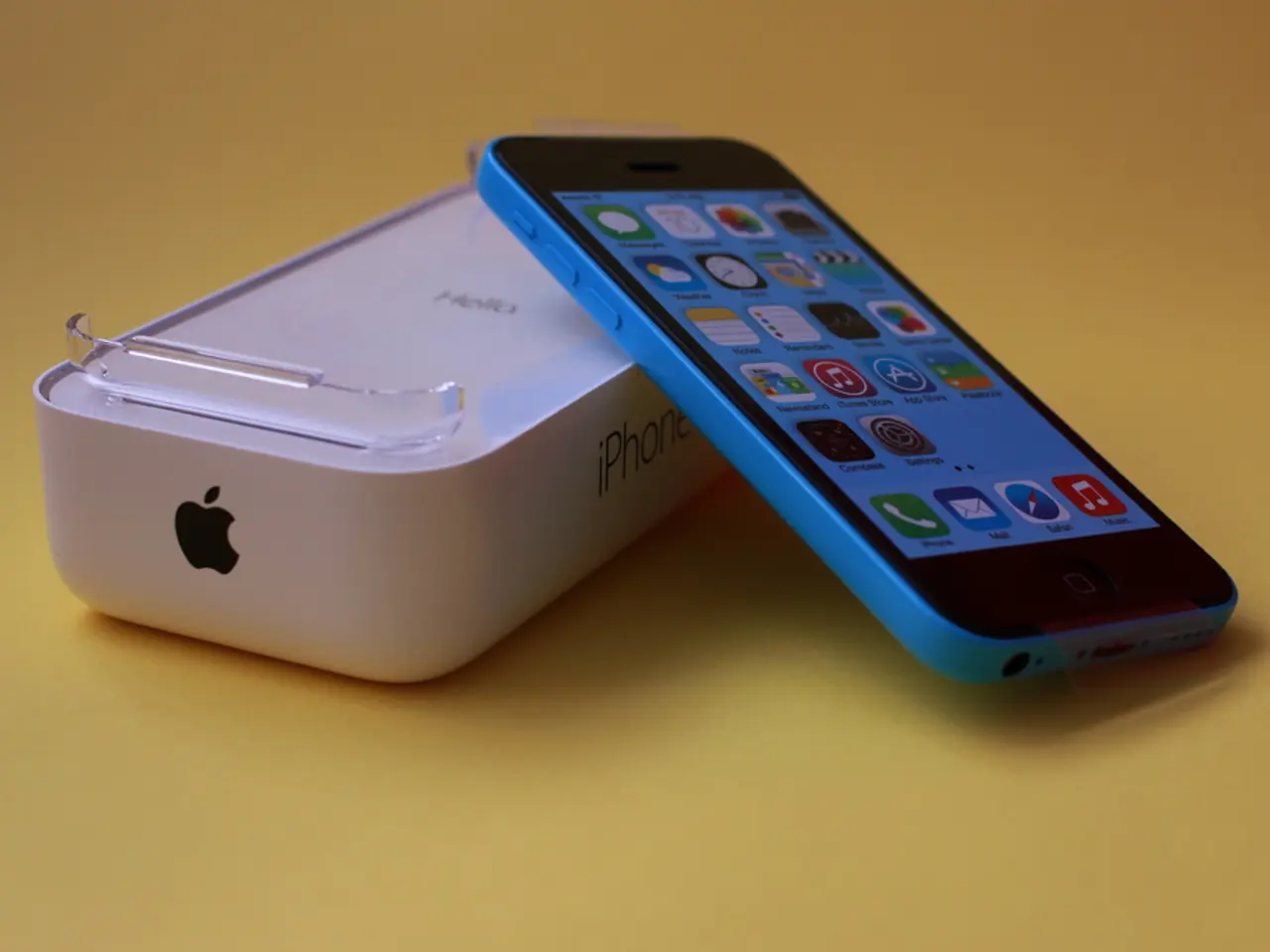Potential requirement for unique USB-C cables for optimal iPhone 15 functionality
In the world of technology, compatibility and quality are paramount. This is where Apple's MFi certification comes into play, ensuring that third-party accessories designed for iPhones, iPads, and iPods work seamlessly with Apple devices.
The MFi program, short for "Made for iPhone/iPad/iPod", was expanded and rebranded by Apple in 2012, following the iPhone 5's adoption of the Lightning standard. This certification program ensures that accessories meet Apple’s performance, quality, and compatibility standards, covering items such as cables, chargers, hearing aids, audio equipment, and other peripherals.
One such example is MFi hearing aids, designed to connect directly to Apple devices like iPhones and iPads, allowing features like streaming calls and music without intermediaries. Similarly, MFi Lightning accessories are certified to work properly with Apple’s Lightning port devices.
The MFi logo on an accessory signifies official Apple-approval, indicating a product designed to ensure seamless compatibility and high quality for Apple device users.
While Android manufacturers, such as OnePlus, also practice exclusivity with charging cables, OnePlus, under the Oppo brand, uses the red cable motif for its charging standard. However, Apple's iPhone 15 is expected to rely on MFi certification for full capability.
It's worth noting that MFi applies only to manufacturers of electronic accessories, particularly those that don't utilize an Apple standard like MagSafe. For instance, OnePlus has adopted SuperVOOQ, and buying the right cable and adapter is essential to reach full 80W charging speeds.
In the case of the iPhone 15, non-MFi-certified cables may be limited in data and charging speed. This is a common practice to ensure the integrity and performance of Apple devices.
Ming-Chi Kuo, a supply chain analyst, has been a major contributor to the iPhone USB-C conversation. In November, he predicted that the iPhone 15 and iPhone 15 Plus will have USB 2.0 transfer speeds. He also predicted that the iPhone 15 Pro/Pro Max (or Ultra) will have USB-C 3.2 and Thunderbolt 3 speeds, which could potentially offer faster data transfer rates and support for external displays.
The leaker ShrimpApplePro has accurately predicted features in the iPhone 14, lending credibility to these predictions. Apple's iPhone 15 is expected to feature a USB-C port, a departure from the Lightning port it has used since 2012.
Accessories like AirPods and cables for the iPhone 15 are being manufactured overseas based on the MFi standard. This ensures that users can expect the same high-quality experience, whether they are in the US or abroad.
In conclusion, MFi certification plays a crucial role in ensuring the compatibility and quality of third-party accessories for Apple devices. As technology continues to evolve, it will be interesting to see how this certification program adapts to meet the needs of Apple users in the future.
- In the future, the MFi certification program might need to adapt to accommodate new Apple technologies such as USB-C port in the iPhone 15.
- For the seamless operation of smartphones like the iPhone 15, it's essential to use MFi-certified accessories to ensure high quality and compatibility.
- The future of technology, particularly Apple's device ecosystem, will depend on how the MFi certification program adapts to advancements in tech gadgets and gizmos.




